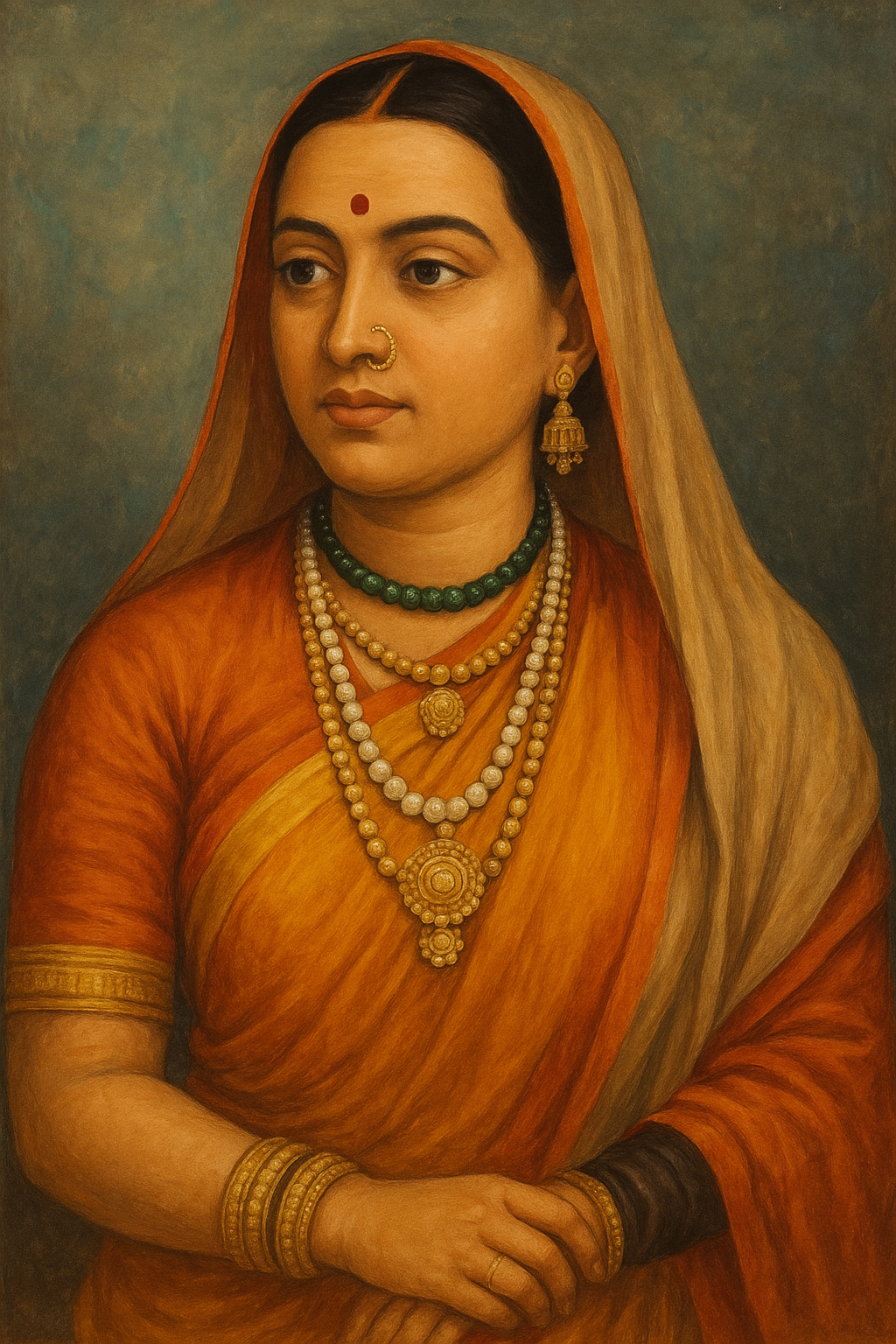
In a time when women's roles were largely confined to the domestic sphere, Ahilya Bai Holkar stood as a radiant exception—not only ruling a kingdom but also redefining the very essence of leadership, justice, and womanhood in India. Her name may not frequently appear in political discourse or school textbooks, but her legacy has started to trend again, as India reassesses historical icons who empowered women not through slogans, but through action.
Born in 1725 in the village of Chaundi in present-day Maharashtra, Ahilya Bai was not born into royalty. She was spotted by Malhar Rao Holkar, a noble in the Maratha Empire, who chose her as a bride for his son, Khanderao Holkar. After her husband died in battle and her father-in-law passed away, Ahilya Bai assumed the throne of the Holkar dynasty in 1767. What followed was a reign that not only stabilized the kingdom but left an indelible mark on Indian history.
Governance Rooted in Justice and Compassion
Ahilya Bai governed from Maheshwar, a small town on the banks of the Narmada River in Madhya Pradesh, which she transformed into a centre of art, culture, and spirituality. Unlike most rulers of her time, she held public audiences daily, inviting citizens to present grievances, suggest policies, or ask for aid. Her court was open and participatory—a rare model of civic engagement in the 18th century.
She made policy decisions that reflected an extraordinary blend of empathy and pragmatism. She reduced taxes for peasants during times of drought, provided free education to girls, and rehabilitated widows who were otherwise shunned by society. These were revolutionary moves for a woman, let alone a queen, in a deeply patriarchal era.
Builder of Temples, Patron of Faith
Her devotion to spirituality was not mere symbolism. She personally oversaw the construction and restoration of hundreds of temples across India—from Somnath in Gujarat to Kashi Vishwanath in Varanasi. These efforts were not confined to the Holkar state. They were part of a larger cultural renaissance that made sacred sites accessible and respected across caste and class divides.
Unlike many rulers, Ahilya Bai did not build monuments to glorify her own name. Instead, she revived what had been destroyed or neglected, silently stitching together India’s spiritual fabric. Her sense of duty was aligned with service, not self-aggrandizement.
A Feminist Icon Before Feminism
Ahilya Bai’s life and work challenge the often narrow definition of feminism. She didn't hold marches or write manifestos, but her rule embodied equality, dignity, and self-reliance—values that contemporary feminism champions. She employed women in her court and administration, ensured property rights for widows, and defied social customs that sought to limit a woman’s role after the death of her husband.
Her refusal to commit sati (the practice of widow self-immolation), despite enormous societal pressure, sent a powerful message: that a woman’s worth doesn't end with her husband’s life. Instead, it can begin anew, in service, strength, and sovereignty.
Relevance in Contemporary India
In today’s India, where women continue to battle for representation in politics, safety in public spaces, and equity in employment, Ahilya Bai’s model of leadership is both inspiring and instructive. She didn't wait for permission to lead. She stepped up when the moment demanded courage, not compliance.
Her governance model, 'transparent, inclusive, and ethical" is a template that modern leaders, irrespective of gender, could emulate. Her emphasis on grassroots engagement, education for girls, and public welfare remains relevant in a country where access to basic services is still unequal.
As conversations about women's empowerment gain momentum in digital and policy circles, Ahilya Bai's example offers a more holistic vision: empowerment that is spiritual, economic, political, and social.
The Cultural Revival of Her Legacy
It is only recently that India has started to re-embrace Ahilya Bai's legacy. TV shows, social media campaigns, and state-led commemorations are bringing her story back into the public eye. Yet, much work remains. Her story is still not standard fare in school syllabi, nor is she given the same national attention as other male rulers of her time.
In a country seeking role models who represent integrity and inclusiveness, Ahilya Bai stands tall. She was not just a queen. She was a cultivator of wisdom, a reformer of institutions, and a nurturer of her people. Her life is proof that true power does not reside in conquest, but in compassion.
An Enduring Flame
Ahilya Bai Holkar's life transcends time and gender. She wasn't just ahead of her era; she is ahead of ours. Her legacy, long buried under layers of patriarchal history, is finally finding its rightful place in India's consciousness.
As her name trends once again, may it not be a fleeting gesture. May it ignite deeper reflection and inspire a new generation of leaders, especially women to lead not with fear, but with fortitude.





















